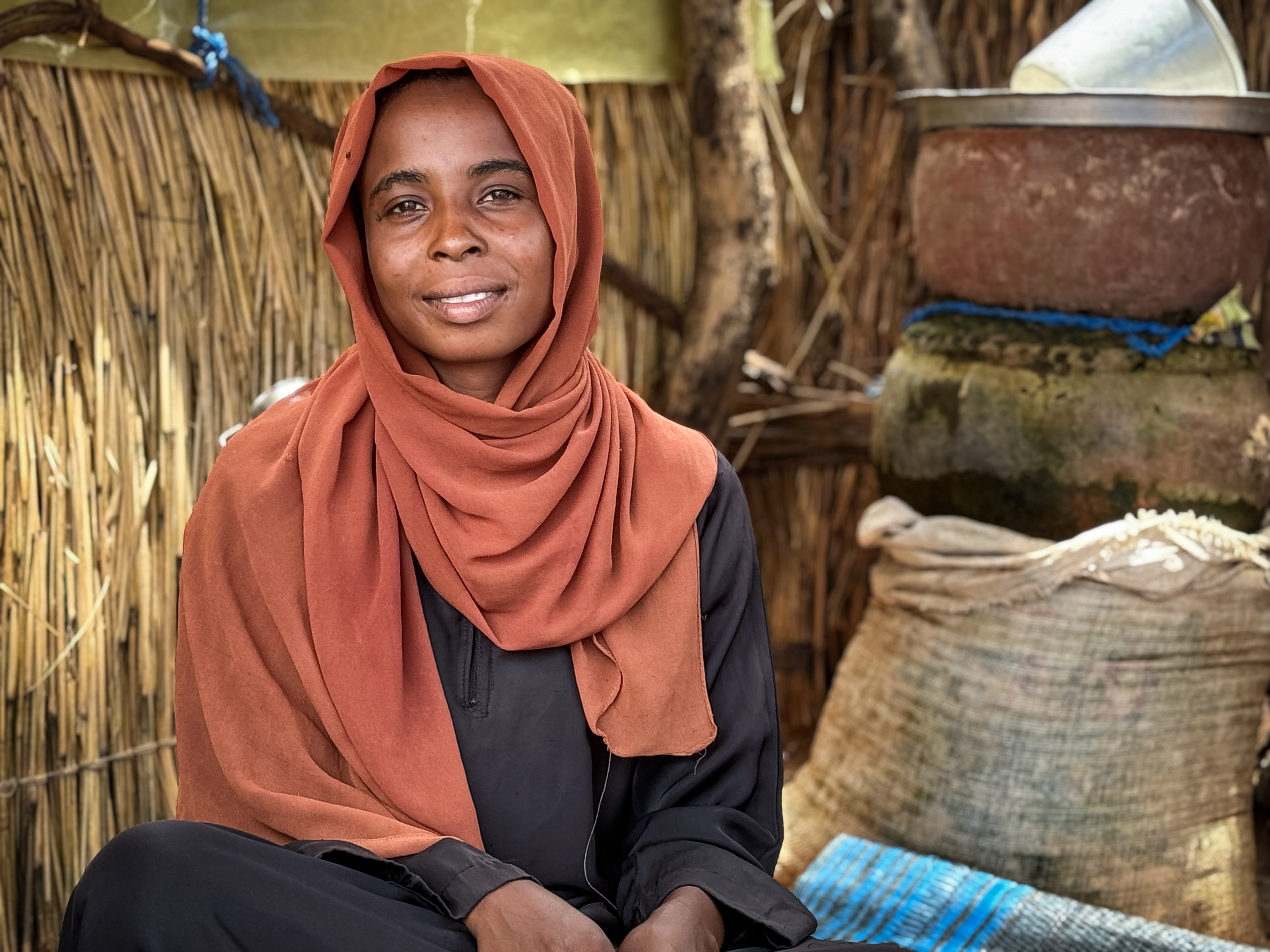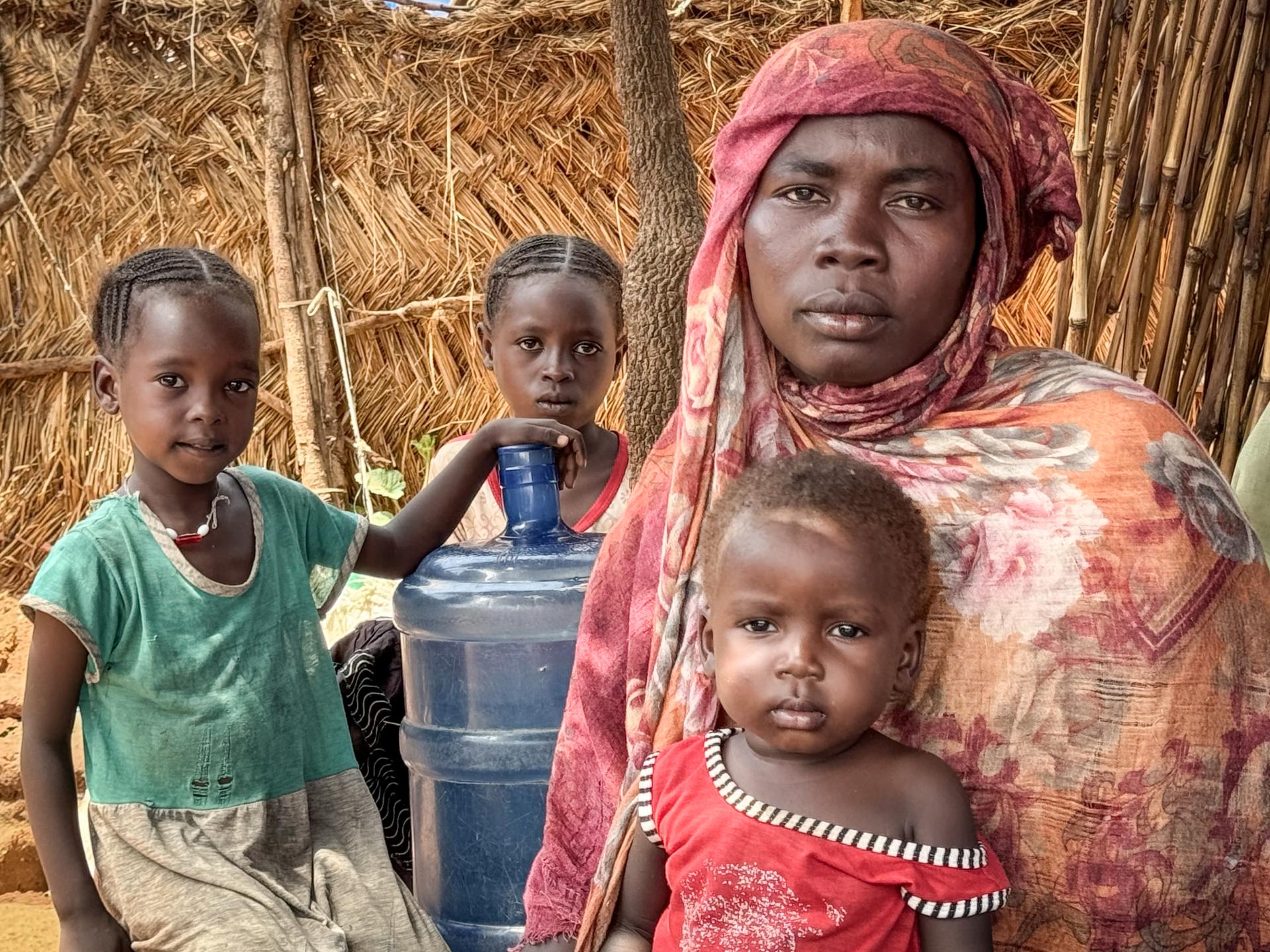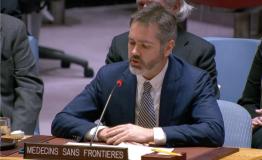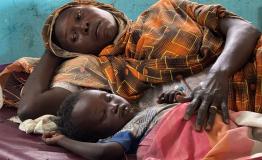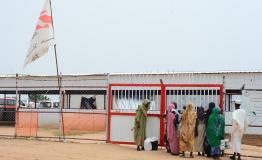Jimiya Abdallah
Jimiya and her family of ten — herself, her husband, and their eight children — have been living in Aboutengue camp for above one year, since fleeing from Sudan in July 2023. Originally from Umm Dukhn:
"Our life here is tragic compared to Sudan (prior the war). We don’t have enough resources, especially food."
To earn money, Jimiya and other women travel far into the forest around the camp to collect firewood. "The forest is really far away, but it’s the only way I can earn some money to feed my family. There are no job opportunities here."
At first, when they arrived, they were given enough food. "We used to receive beans, and the children really loved them. But now, the rations have decreased. Recently, we only got sorghum and oil, which are very hard to cook on their own. We usually make soup with sorghum, but without fresh ingredients like vegetables or meat, we hardly know how to eat it. This is why we need to work."
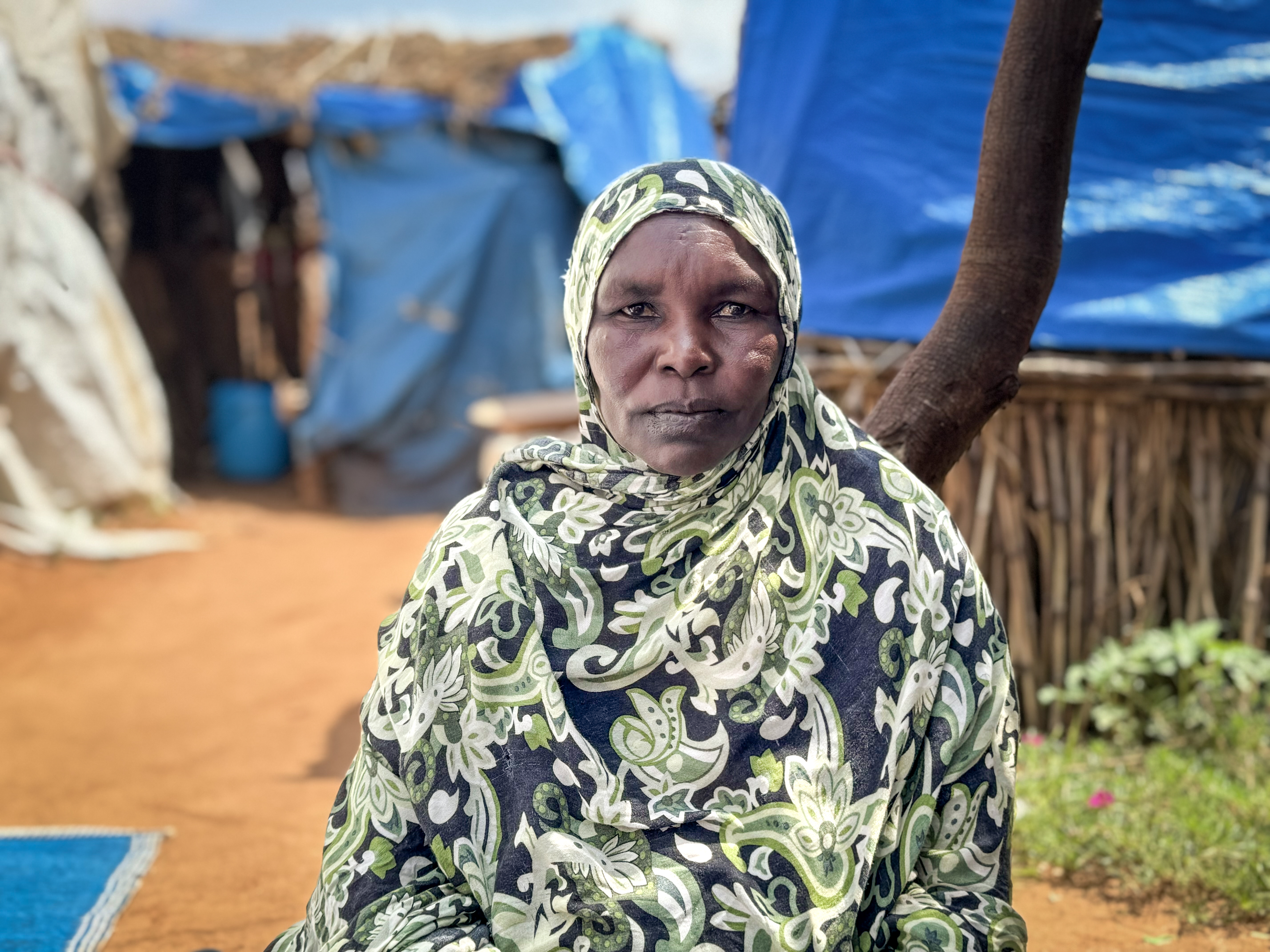
We also know the NGOs here are working hard, but we need enough food. We also need training for work opportunities technical skills like sewing so we can sustain our families. And we hope to receive proper shelters soon. We’ve built one ourselves, but it’s temporary shelter. We don’t have mattresses, cooking utensils, blankets, or mats. There isn’t enough space for ten people, so we built two shelters, but we only got plastic sheeting for one. The plastic isn’t enough when it rains heavily
Aziza Idriss
Aziza has been in Aboutengue camp for more than a year (arriving in July 2023) with her family of nine: herself, her mother, and her seven children, including her eldest daughter and her baby, who shares their shelter despite being married. Originally from El-Geneina, she reflects on their struggles:
"Life in the camp is difficult. We’re living with a lot of hardships. We don’t have enough food. Food distributions happen once a month, but the rations are so small that we usually run out of food long before the next distribution."
To support her family, Aziza usually works on nearby farms. " We are lacking everything. I was supposed to work today, but I’m sick,"
“But going into the forest is not without risk. Sometimes, when we’re in the forest, some people threaten us, saying we’re not allowed to collect wood. Some of us have even been beaten.”
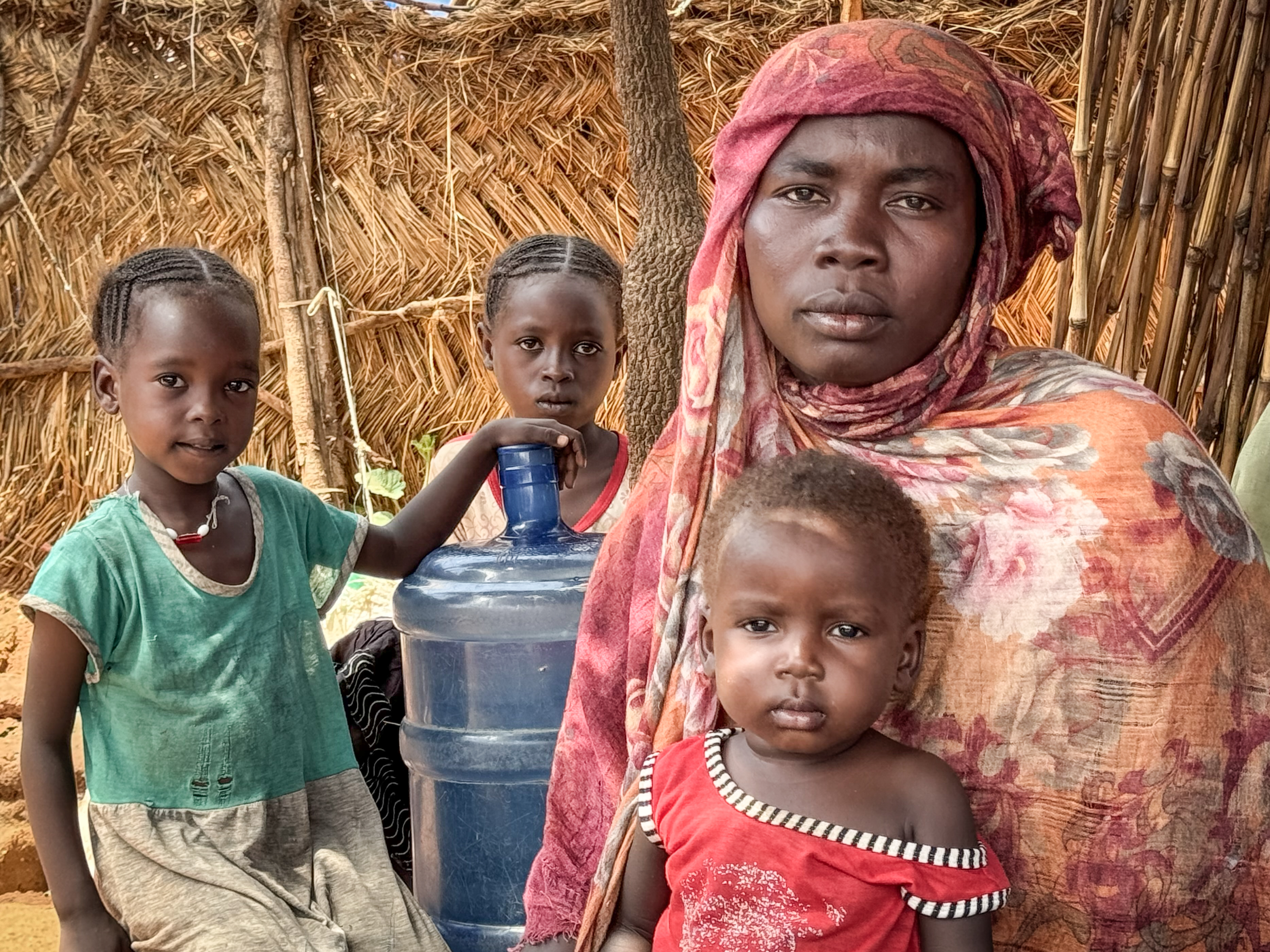
"When I compare what our lives used to be in Sudan before the war to what we have now, it really troubles me. All we want is to live with dignity, like we used to. "
Mariam Yahia
We arrived in Aboutenge camp in August 2023. We are a family of 11: my parents, myself, and my eight brothers and sisters. I’m 22, the second eldest in the family. We come from El-Geneina.
Living conditions here are difficult. The food we receive is not enough, and we cannot make it through the month with what we’re given. Not only has the quantity decreased, but so has the variety. We used to receive beans in the rations, which were ideal for lunch, but not anymore.
Water is also insufficient. The water points we rely on are shared by too many people, and with the size of our family, we need to refill our jerrycan twice a day.
We also don’t have a proper shelter. Even though we built this one the best way we could, it’s not big enough for the whole family.
I’m also worried when I see young people my age with nothing to do. Many of them used to work in Sudan and support their families. Now, I see a lot of them with no direction…
Four of my brothers are now in other parts of Chad working on daily basis. Two went back to Adré transit camp a few months ago, and one of my younger brothers is now working in a mine, far from here. They’re doing this so they can send us money to survive.
